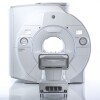Landmark Policy Report: Many Cancers Could Be Prevented in the U.S. and Across the Globe
by Barbara Kram, Editor | March 03, 2009

The evidence is indisputable:
a healthy lifestyle prevents cancer
a healthy lifestyle prevents cancer
WASHINGTON, DC - A new global policy report estimates that approximately 45 percent of colon cancer cases and 38% of breast cancer cases in the U.S. are preventable through diet, physical activity and weight maintenance. The report also sets out recommendations for policies to reduce the global number of cancer cases.
The overall message of the report, Policy and Action for Cancer Prevention, published today by World Cancer Research Fund (WCRF) and American Institute for Cancer Research (AICR), is that all sections of society need to make public health, and cancer prevention in particular, a higher priority.
It includes estimates on the proportion of many different types of cancer that could be prevented through diet, physical activity and weight management. In the U.S., about one third of the most common cancers could be prevented. That figure does not include smoking, which alone accounts for about a third of cancers.
Different Policy Recommendations For Different Groups
As part of the evidence-based report, thought to be the most comprehensive ever published on the subject, two independent teams of scientists systematically examined the evidence for how policy changes can influence the behaviors that affect cancer risk.
Following this, a panel of 23 world-renowned experts made a total of 48 recommendations, divided between nine different but often overlapping sectors of society - called "actor groups" in the report. These actor groups are: multinational bodies; civil society organizations; government; industry; media; schools; workplaces and institutions; health and other professionals; and people.
Among the recommendations:
* Governments should require widespread walking and cycling routes to encourage physical activity.
* Industry should give a higher priority for goods and services that encourage people to be active, particularly young people.
* The food and drinks industry should make public health an explicit priority at all stages of production.
* Schools should actively encourage physical activity and provide healthy food for children.
* Schools, workplaces and institutions should not have unhealthy foods available in vending machines.
* Health professionals should take a lead in giving the public information about public health, including cancer prevention.
* People should use independent nutrition guides and food labels to make sure the food they buy for their family is healthy.
Professor Sir Michael Marmot, Chair of the WCRF/AICR Panel, said, "When people think of policy reports, they often think they only speak to governments. But the evidence shows that when it comes to cancer prevention, all groups in society have a vital role to play."
The overall message of the report, Policy and Action for Cancer Prevention, published today by World Cancer Research Fund (WCRF) and American Institute for Cancer Research (AICR), is that all sections of society need to make public health, and cancer prevention in particular, a higher priority.
It includes estimates on the proportion of many different types of cancer that could be prevented through diet, physical activity and weight management. In the U.S., about one third of the most common cancers could be prevented. That figure does not include smoking, which alone accounts for about a third of cancers.
Different Policy Recommendations For Different Groups
As part of the evidence-based report, thought to be the most comprehensive ever published on the subject, two independent teams of scientists systematically examined the evidence for how policy changes can influence the behaviors that affect cancer risk.
Following this, a panel of 23 world-renowned experts made a total of 48 recommendations, divided between nine different but often overlapping sectors of society - called "actor groups" in the report. These actor groups are: multinational bodies; civil society organizations; government; industry; media; schools; workplaces and institutions; health and other professionals; and people.
Among the recommendations:
* Governments should require widespread walking and cycling routes to encourage physical activity.
* Industry should give a higher priority for goods and services that encourage people to be active, particularly young people.
* The food and drinks industry should make public health an explicit priority at all stages of production.
* Schools should actively encourage physical activity and provide healthy food for children.
* Schools, workplaces and institutions should not have unhealthy foods available in vending machines.
* Health professionals should take a lead in giving the public information about public health, including cancer prevention.
* People should use independent nutrition guides and food labels to make sure the food they buy for their family is healthy.
Professor Sir Michael Marmot, Chair of the WCRF/AICR Panel, said, "When people think of policy reports, they often think they only speak to governments. But the evidence shows that when it comes to cancer prevention, all groups in society have a vital role to play."
1(current)









